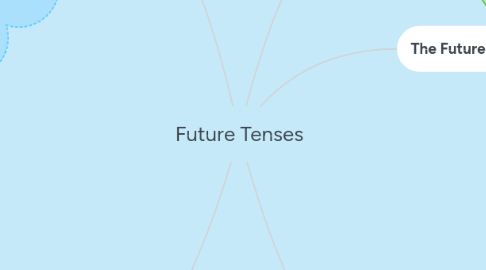
1. The Future Time
2. Future Simple
2.1. What is
2.1.1. The future simple is used to describe actions that are going to take place in the future, without the need to specify when. In English this verb tense is usually expressed with the modals "shall / will" or with the construction "be going to".
2.2. Example
2.2.1. I will see you next week. Will you be home for dinner? I won’t admit something that I didn’t do. Don’t worry, they will be here on time. They will never guess the answer. I promise I will work harder. Will you do me a favor? The teacher won’t tolerate this. I think I will take a shower. The doctor will see you now.
3. Future Continuous
3.1. What is
3.1.1. The "future continuous" refers to an unfinished action or event that will continue to occur after the present moment. The "future continuous" is used for a considerable variety of purposes. The "future continuous" can be used to project ourselves into the future.
3.2. Example
3.2.1. I’ll be working (I will be working) You’ll be working (You will be working) He’ll be working (He will be working) She’ll be working (She will be working) It’ll be working (It will be working) We’ll be working (We will be working ) You’ll be working (You will be working) They’ll be working (They will be working)
4. Future planned
4.1. what is
4.1.1. We use the time "The Future Planned" to talk about things in the future that have been planned or are simply not spontaneous. In PLANNED FUTURE, we use GOING TO in the same way that we use the verb "IR" in Spanish to indicate the future. This tense can only be done with NORMAL verbs, it cannot be done with SPECIAL verbs.
4.2. Example
4.2.1. I am going to eat / I’m going to eat We are going to go / We’re going to go She is going to study / She’s going to study
5. Future Perfect (Will Be)
5.1. What is:
5.1.1. The perfect future denotes a future action that occurred prior to another also future. It is a perfective-looking relative tense. It is characteristic of the Romance languages. (Action that is finished before an established future time)
5.2. Example
5.2.1. I will have finished this book You will have studied the English tenses She will have cooked dinner He will have arrived We will have met Julie It will have stopped raining They will have left Japan
